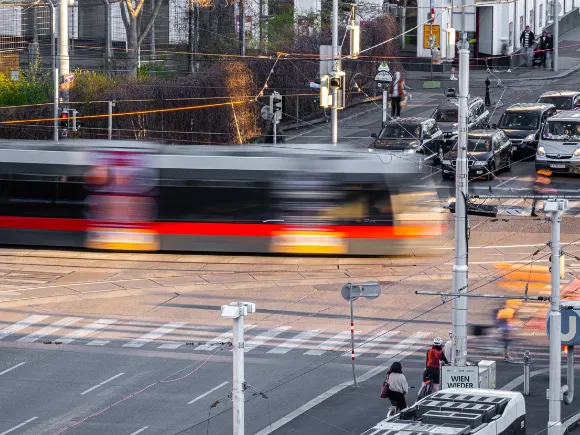News
Our sustainability in figures:
-
900
900people
fit into a single Vienna underground train. They would need 790 cars to reach their destination.
-
300
300million
additional passengers per year can travel by public transport thanks to the U2xU5 public transport expansion.
-
30000
30000jobs
will be created and secured by the investment in the U2xU5 public transport expansion.
-
1
1%
is the share of public transport in the ecological footprint of the city of Vienna. The reason: the high efficiency of public transport.
-
550000000
550000000car kilometres per year
can be saved through the U2xU5 public transport expansion. That corresponds to the distance from Earth to Mars.
-
4
4new underground junctions
are being created by the U2xU5 public transport expansion. This will make public transport in Vienna even faster.
-
100
100%
of the electricity for our trams, underground trains and electric buses comes from renewable energy sources.
-
80
80%
of public transport passengers already travel in an environmentally friendly electric mode, as underground trains, trams and e-buses are powered by green electricity.
-
2
2million
passengers use public transport in Vienna every day. Together we are Vienna's largest carpool!
Wiener Linien Customer Service
-
Do you have questions about your ticket? Have you been found without a valid ticket and have to pay an additional fee? Do you have questions or problems when buying tickets online? Whatever concern you have: We are happy to take care of it!
Get in touch with us
-
Handle your request online: Visit our Help Center
-
Find an office: Offices & opening hours
-
Call our customer hotline: +43 1 7909 100





